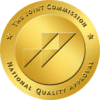Depression
Approximately 280 million people in the world suffer from depression. It is one of the most common mental health illnesses in the world [4].
Many people use substances to create feelings of pleasure when they experience a feeling of depression. These feelings are often heightened after the euphoria of the substance wears off. This can also trigger further substance abuse and create a dangerous cycle.





